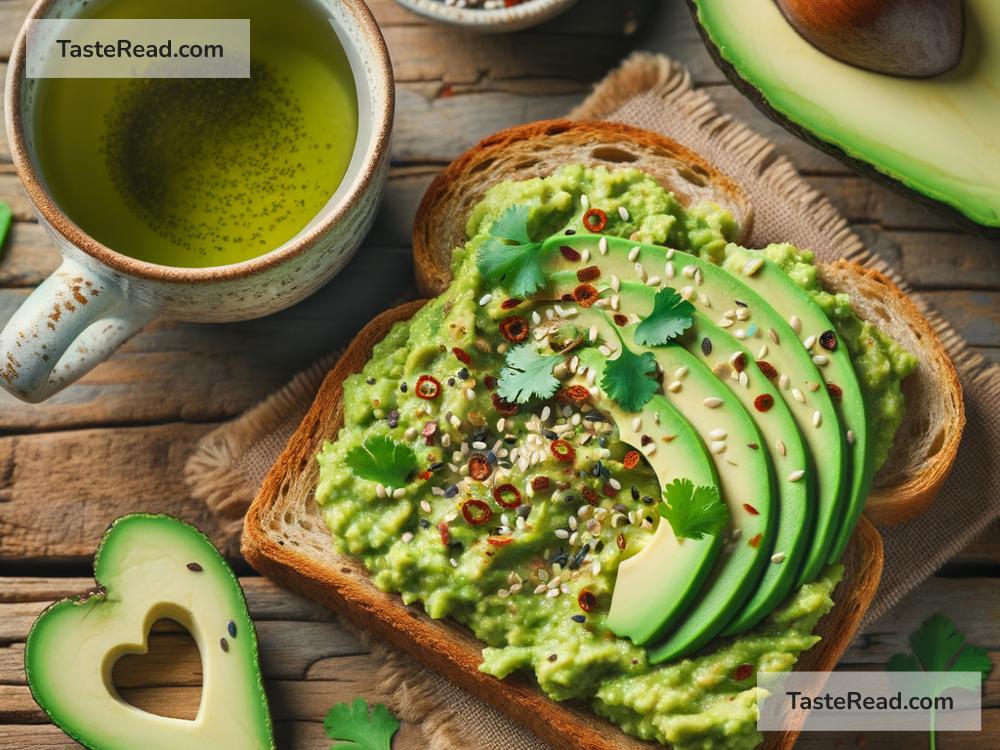The Surprising Benefits of Avocados for Heart Health
If you’re looking for a tasty food that’s good for your heart, avocados might be just what you need. These creamy, green fruits have gained a lot of popularity in recent years, often showing up on toast, in salads, or blended into guacamole. While they taste great, they also pack a serious punch when it comes to boosting heart health. Let’s dive into the surprising benefits avocados offer for keeping your heart in tip-top shape.
What Makes Avocados Heart-Friendly?
Avocados are special because they’re full of nutrients that support heart health. These include healthy fats, fiber, potassium, vitamins, and other compounds that work together to keep your heart strong. What’s even better is that avocados are all-natural, making them a great alternative to processed foods when you’re trying to improve your diet.
Here are the key reasons avocados are heart-friendly:
1. Rich in Healthy Fats
One of the standout features of avocados is their abundance of healthy fats, particularly monounsaturated fats. These are the “good fats” that help reduce bad cholesterol (LDL) levels while increasing good cholesterol (HDL) levels. High LDL cholesterol can clog your arteries over time, increasing the risk of heart attacks and strokes. By incorporating avocados into your meals, you can help your body maintain a balanced cholesterol level.
In fact, studies show that diets rich in monounsaturated fats, like those found in avocados, can lower the overall risk of heart disease. Unlike saturated fat, which can increase bad cholesterol, monounsaturated fat supports a healthier heart.
2. Packed with Potassium
Potassium is an important mineral that plays a big role in heart health, and avocados are a great source of it. Potassium helps control blood pressure by balancing out the negative effects of sodium. When your body has enough potassium, it can relax blood vessels, reduce strain on the heart, and improve circulation.
Most people don’t get enough potassium in their diets. By snacking on avocados, you can increase your potassium intake naturally. In fact, one avocado has more potassium than a banana, which is another well-known source of this essential mineral.
3. High in Fiber
Fiber is another heart-healthy nutrient that avocados provide. A single avocado contains about 10 grams of fiber—much more than many other fruits and vegetables. Fiber is great for your heart because it helps lower cholesterol levels and keeps your blood sugar in check. It also prevents overeating by keeping you full for longer, which can be helpful if you’re trying to maintain a healthy weight.
Maintaining a healthy weight is vital for heart health. Being overweight or obese can put extra strain on your heart and lead to conditions like high blood pressure, diabetes, or high cholesterol. Adding fiber-rich foods like avocados to your diet can help you stay on track.
4. Loaded with Antioxidants
Avocados are rich in antioxidants like vitamin E and glutathione, which protect your heart from damage caused by free radicals. Free radicals are unstable molecules that can harm cells, including those in your cardiovascular system. Over time, this damage can increase the risk of heart disease.
The antioxidants in avocados work to neutralize free radicals, helping to prevent inflammation and improve overall heart health. Plus, antioxidants can lower your risk of developing chronic conditions such as high blood pressure and atherosclerosis (a buildup of plaque in your arteries).
5. Helps with Weight Management
If you’re watching your weight, avocados can be a great addition to your diet. Although they’re high in calories due to their fat content, these fats are healthy and satisfying. Eating avocados can help you feel full for longer, which may prevent overeating or constant snacking on less nutritious foods.
Maintaining a healthy weight is important for your heart. When your body weight is within a healthy range, your heart doesn’t have to work as hard, and you’re less likely to develop high cholesterol or high blood pressure.
How to Add Avocados to Your Diet
The good news is that adding avocados to your meals is easy and delicious! Here are some simple ways to enjoy them:
– Spread on toast: Mash up an avocado with a pinch of salt and pepper and spread it on whole-grain toast for a satisfying breakfast.
– Salads: Dice up some avocado and toss it into your salad for added creaminess and flavor.
– Smoothies: Blend avocado with spinach, banana, and almond milk for a heart-healthy smoothie.
– Sandwiches and wraps: Use avocado slices as a substitute for mayo or cheese.
– Snacks: Sprinkle avocado chunks with lemon juice and a dash of seasoning for a quick and healthy snack.
Final Thoughts
Avocados aren’t just trendy—they’re one of the healthiest foods you can eat, especially for your heart. Packed with nutrients like healthy fats, fiber, potassium, and antioxidants, avocados can help lower cholesterol, reduce blood pressure, manage weight, and protect your cardiovascular system.
Whether you enjoy them on toast, in salads, or as guacamole, adding avocados to your diet is a simple step toward better heart health. So, the next time you’re at the grocery store, grab a few avocados and start boosting your heart health, one delicious bite at a time!


